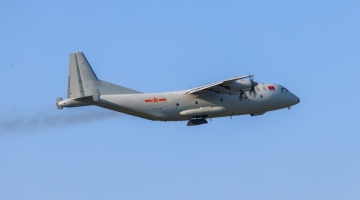By Hua Zhang
According to messages from the ROK Ministry of Foreign Affairs a few days ago, the China-Japan-ROK senior officials' meeting is scheduled to be held in Seoul on September 26. This marks the resumption of the meeting after a gap of four years, which is widely seen as an important opportunity to restart the trilateral cooperation mechanism.
The China-Japan-ROK senior officials' meeting was initiated in May 2007 and the last meeting was held in Chengdu, Southwest China's Sichuan province in December 2019. The Trilateral Cooperation Vision for the Next Decade issued at that latest trilateral summit meeting drew up a blueprint and laid the foundation for practical cooperation in the economy and trade, science and technology, people and culture, environment, and other diverse fields for the three countries. China, Japan and the ROK have made continuous progress in exchanges and cooperation of various fields over the years, jointly holding eight trilateral summit meetings and nine foreign ministers' meetings, establishing 21 ministerial meetings and more than 70 dialogue mechanisms. Together with these trilateral summit meetings and foreign ministers' meetings, the senior officials' meetings also constitute an important part of the trilateral cooperation mechanism.
However, the China-Japan-ROK cooperation mechanism has also experienced setbacks due to historical entanglement, geopolitics and other factors. For example, the trilateral summit meetings were designed to be hosted by the three countries in rotation once a year, but only registered a number of eight since the first meeting in 2008. Especially in recent years, individual country outside the region has resumed hegemonistic and isolationistic mentalities, forcing Japan and the ROK to build encirclement against China, which has further damaged the collaborative atmosphere of the three countries.
Nevertheless, the three countries are inseparable neighbors with immediate geographical vicinity and the same cultural origin. Cities like Quanzhou, Yokohama and Gwangju have shared close economic, trade and cultural ties since ancient times. The three countries have witnessed highly complementary industrial chains, vigorous economic and trade exchanges, and a more evident economic integration tendency. In 2022, China's trade volumes with the ROK and Japan reached 362.3 billion and 357.4 billion US dollars respectively, making the two its fourth and fifth largest trading partners. Particularly, in the wake of the endorsement of the Regional Comprehensive Economic Partnership Treaty, they have ushered in new opportunities in jointly exploring overseas markets, and are expected to further consolidate the global value chains within East Asia. In addition, they are also important stakeholders in terms of the regional security of Northeast Asia. Only by collaboration can they achieve regional peace and stability and build a foundation for their own prosperity and development.
On the other side, any security problem in one country is bound to spill over and become a security challenge for the other two. It is visible that China, Japan and the ROK have become a community with a shared future that prospers and loses synchronously either in the aspect of economy or regional security.
Therefore, despite the complex and volatile external situations and the prevailing plot of decoupling, the three countries still strive to improve the coordination atmosphere and facilitate restoring the cooperation mechanism in the principle of safeguarding the common good.
Prior to this senior officials' meeting, frequent positive interactions among them have sent out clear signals. In July and September 2023, their central bank governors and culture ministers respectively held offline meetings to discuss strengthening trilateral cooperation in relevant fields after a 4-year hiatus. On July 25 and August 31, Japanese Foreign Minister Yoshimasa Hayashi and Chinese Foreign Minister Wang Yi publicly expressed support for the ROK to play a positive role in promoting trilateral cooperation. Later, on September 5, ROK President Yoon Suk-yeol stated ahead of his visit to Indonesia that the trilateral cooperation should return to the right track, and the country will make every effort to revitalize the process.
A just cause finds great support, and a journey with many companions goes far. Amid the difficulties and challenges faced by all mankind on the occasion of centennial changes, China has always adhered to the principle of building friendship and partnership with neighbors and the foreign policy of fostering an amicable, peaceful and prosperous neighborhood, and is committed to consolidating friendly cooperation with our neighboring countries. China firmly believes that mutually beneficial cooperation is the right path to overcome the difficulties of the times and to prevent and resolve various risks, and hopes that the ROK and Japan work together in the same direction to remove interferences, activate the trilateral cooperation and exchange mechanism, and resume the journey to jointly revitalize Asia and benefit the world.
Editor's note: Originally published on china.com.cn, this article is translated from Chinese into English and edited by the China Military Online. The information and opinions in this article do not necessarily reflect the views of eng.chinamil.com.cn.









